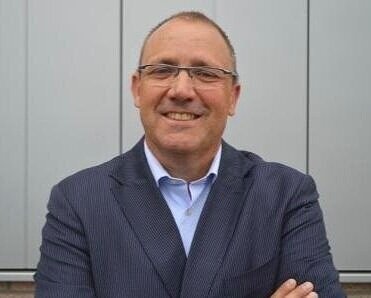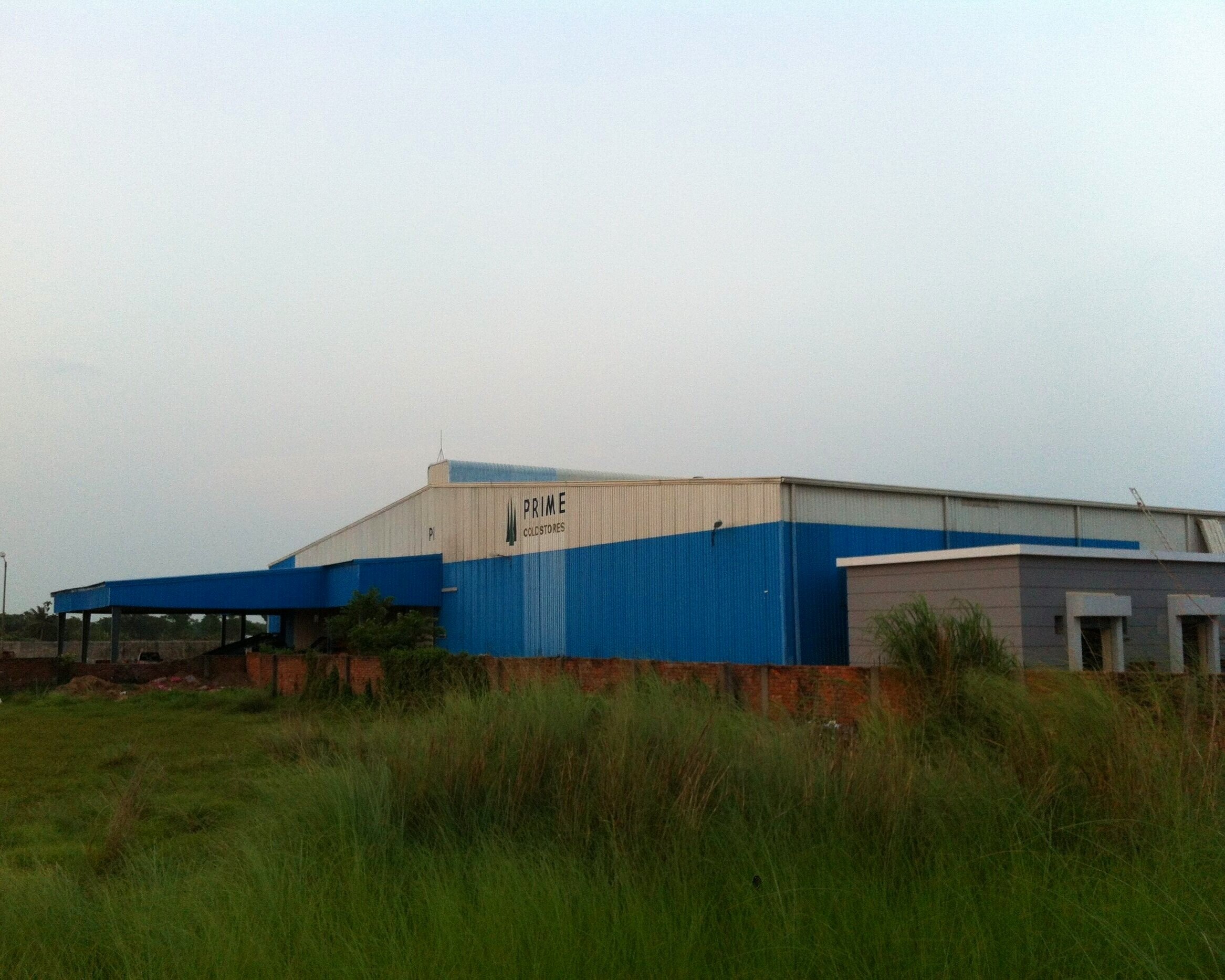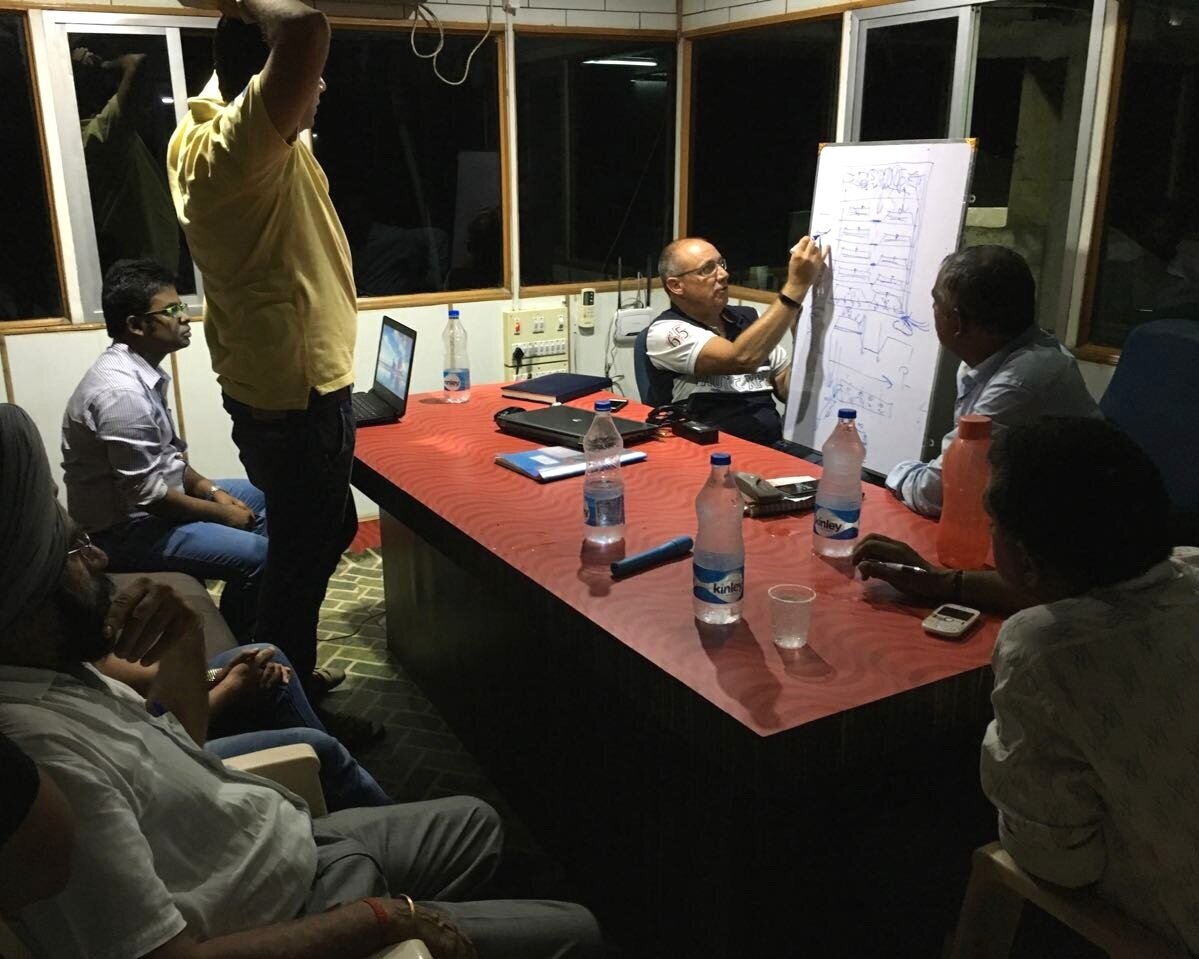Omnivent, the global specialist in agricultural storage technology from Zeewolde, quickly found out after its first assignment for India's largest snack manufacturer that some of the company's high-tech products did not directly match the traditional methods of Indian farmers and the Indian climate. "We therefore developed a low-threshold system for India," says managing director Errol van Groenewoud. "This allows even the smaller farmers to store more efficiently without a hefty price tag. That is the key to success."
Omnivent Managing Director Errol van Groenewoud
An Indian potato store with Omnivent technology
During a visit to one of his clients in Pakistan in 2005, van Groenewoud's eye fell on Southeast Asia. "After contacting the Dutch Embassy in Delhi, I received a number of studies on my desk about the traditional way of cultivating and subsequently storing crops in India. The storage losses, that is the dehydration or degradation of an agricultural product by mould or rot during storage, were high there, between 25-30%. In addition, the farmers had high operational costs. That presented interesting opportunities for us." Yet Omnivent took its first steps in India only three years later. "For a number of large chips factories, modern storage facilities were needed that could handle the continuous supply of potatoes, only that product-related and technical knowledge was not yet available in India." The assignment offers van Groenewoud an interesting insight into Indian arable farming methods. "What we had already read in studies, we could now see up close. Our client used contract farming to work with small, local farmers who were only familiar with traditional storage methods. That was the moment for me to really immerse myself in the Indian market."
Longer returns are not a good selling point in India
For one and a half years, the Omnivent director has been travelling to India almost every month to learn about the country's agricultural methods. But also to share his knowledge. "We give workshops all over the world to arable farmers and other key players in the supply chain. We don't just talk about our technology, but about how to get the agricultural product to the end of the storage chain in a good way. We learn a lot from them during these kinds of meetings. This is how we came to the conclusion that we needed a specific product to become successful in the Indian market and started developing this preservation system Indian style."
According to van Groenewoud, the cost of the technology played a major role in this. "In India, people still think mostly in terms of costs and therefore in the shorter term. They are used to the idea that an investment has a maximum lifespan of three to five years. The argument that your product might last 15-20 years is therefore not convincing. They will still choose the lower price of the local copycat, even if it costs them two or three times as much in the long run. You have to adjust your strategy accordingly.
Being able to pay in rupees is essential for your Indian customer
With their specific products for the Indian market, Omnivent had more and more small farmers as customers and it turned out to be quite a task for these small businesses to make a payment to a company based abroad. "It became very clear that we had to start offering our customers the option of being able to pay in rupees," says van Groenewoud. "The smaller companies often had to go through all sorts of hoops, such as going to the Reserve Bank of India with a lot of paperwork, just to get money into our account. So it was time for us to start an Indian entity."
"At that time, we had already started working with a local business associate," says van Groenewoud. "My many trips back and forth were not efficient, and it was clear that we needed a permanent force on the ground. Also because it is difficult to land a deal in India in a short space of time. What happened to me in the beginning was that the Indian customer only started negotiations on my last day in the country, hoping that I would agree to a deal that was advantageous to them under time pressure. My tip for other entrepreneurs is therefore to be cautious in mentioning your return date and to start negotiations not on the day of departure, but at least one day in advance. That way you won't get stuck."
Without a good relationship, you don't do business in India'.
Omnivent now has a well-run Private Limited in India with a two-strong local team that focuses entirely on new sales and customer care. "Doing business in India requires building good relationships with your customers. Having a dedicated team that can fully focus on this is essential. If you can't make that connection and have a cold, businesslike relationship with your customers, you will never succeed in doing business in this country. This is a cultural trait of the Indian that you have to embrace."
Omnivent managing director Errol van Groenewoud gives training on the best ways to store crops
The local team is also indispensable for the 20-30 projects Omnivent carries out in India every year. "When we install a new system, we send a Dutch specialist to India and ask the customer to put together a team of several local technical engineers. We provide a detailed list so that there is no ambiguity about who and what is needed. However, it still sometimes happens that there is not enough qualified personnel available when our specialist arrives, or that the warehouse is not quite ready for installation. In India, people sometimes find it difficult to address such issues honestly and would rather say that everything is ready than admit that more time is needed. Our local team can now maintain more direct contact with our customers and also goes out regularly to see how the preparations for our various projects are progressing. This allows us to plan even more effectively from the Netherlands."
Indian agricultural sector wants to innovate, but step by step
Despite the fact that the Indian agricultural sector is showing increasing interest in low-cost technological solutions such as fertigation (fertilisation and irrigation), automation and modern cultivation techniques, van Groenewoud does not expect a quantum leap in the next ten years. "If we look at the storage of soil fruits, our expertise, you see that in India they are still often stored in bags. That is now slowly modernising a little, for example more and more conveyor belts are being installed, also because manual labour is becoming more and more expensive in India. But that is only a small step; in ten years' time, it will not be done on a massive scale according to our European model, it will take longer. You have to take that into account if you, as a European company, want to hitch a ride on the growing demand for smart solutions. Traditional agriculture is not looking for high-tech, but for accessible, efficient technology with minimal extra costs".



